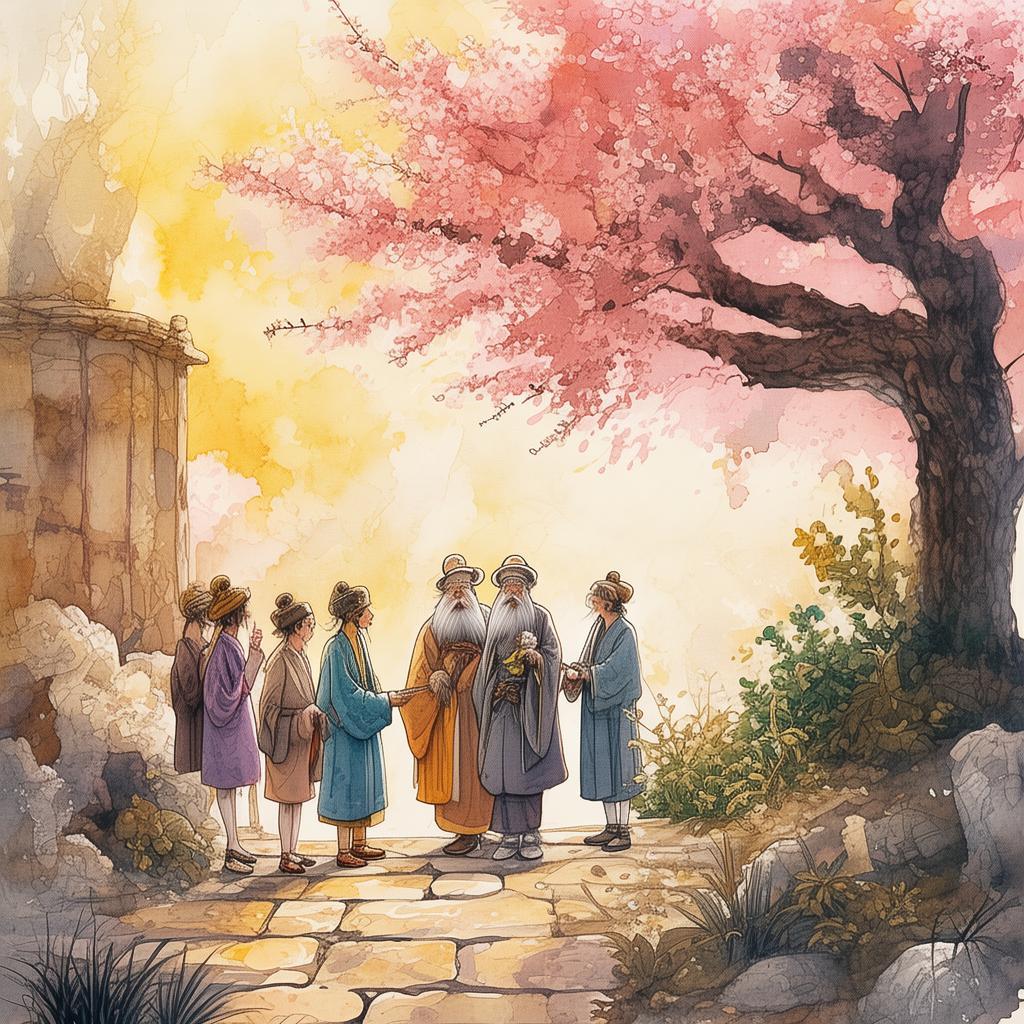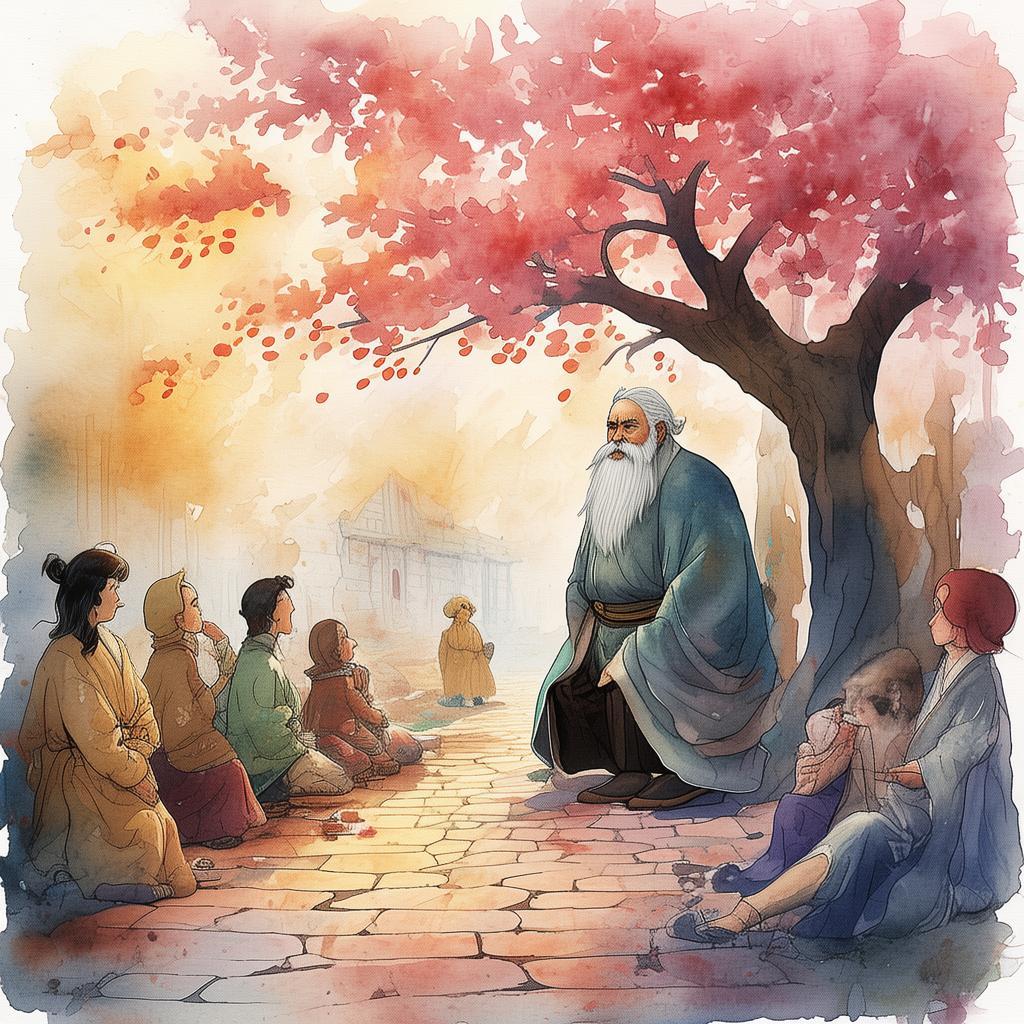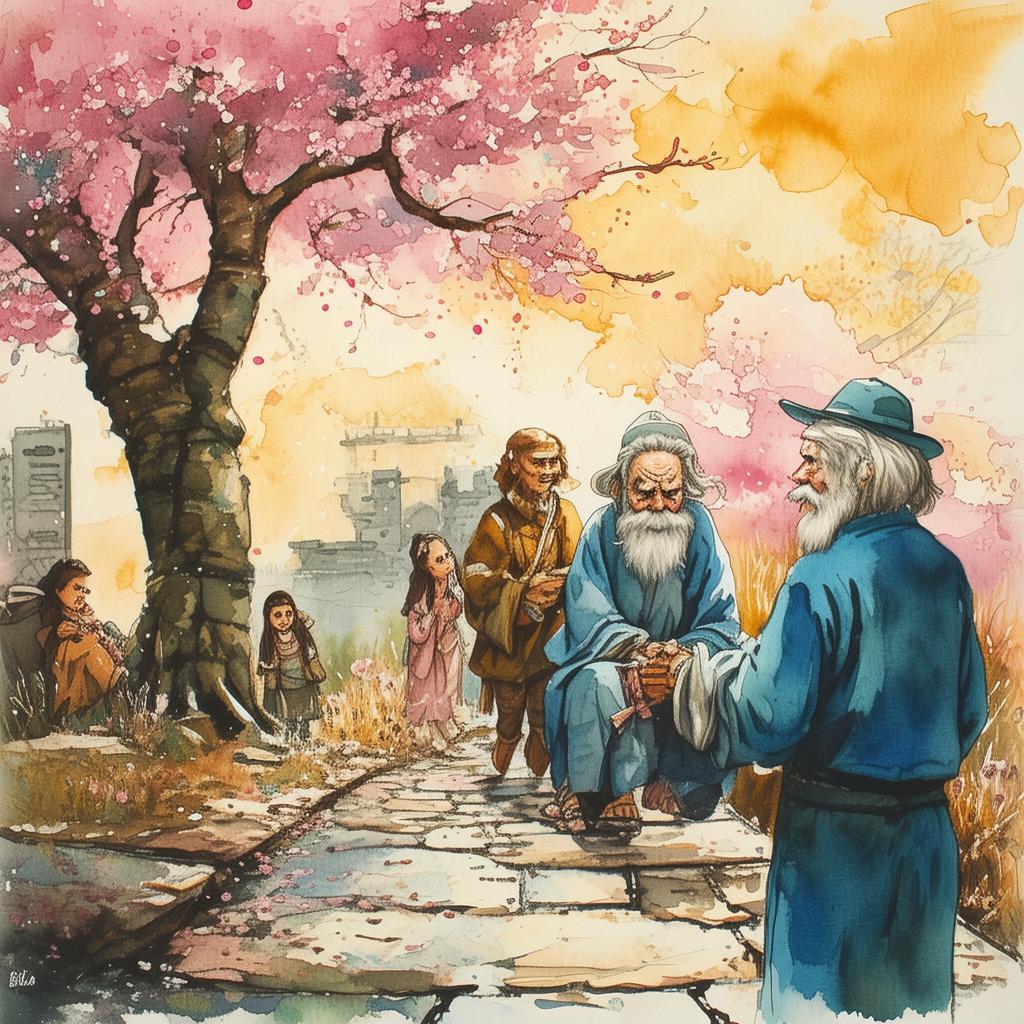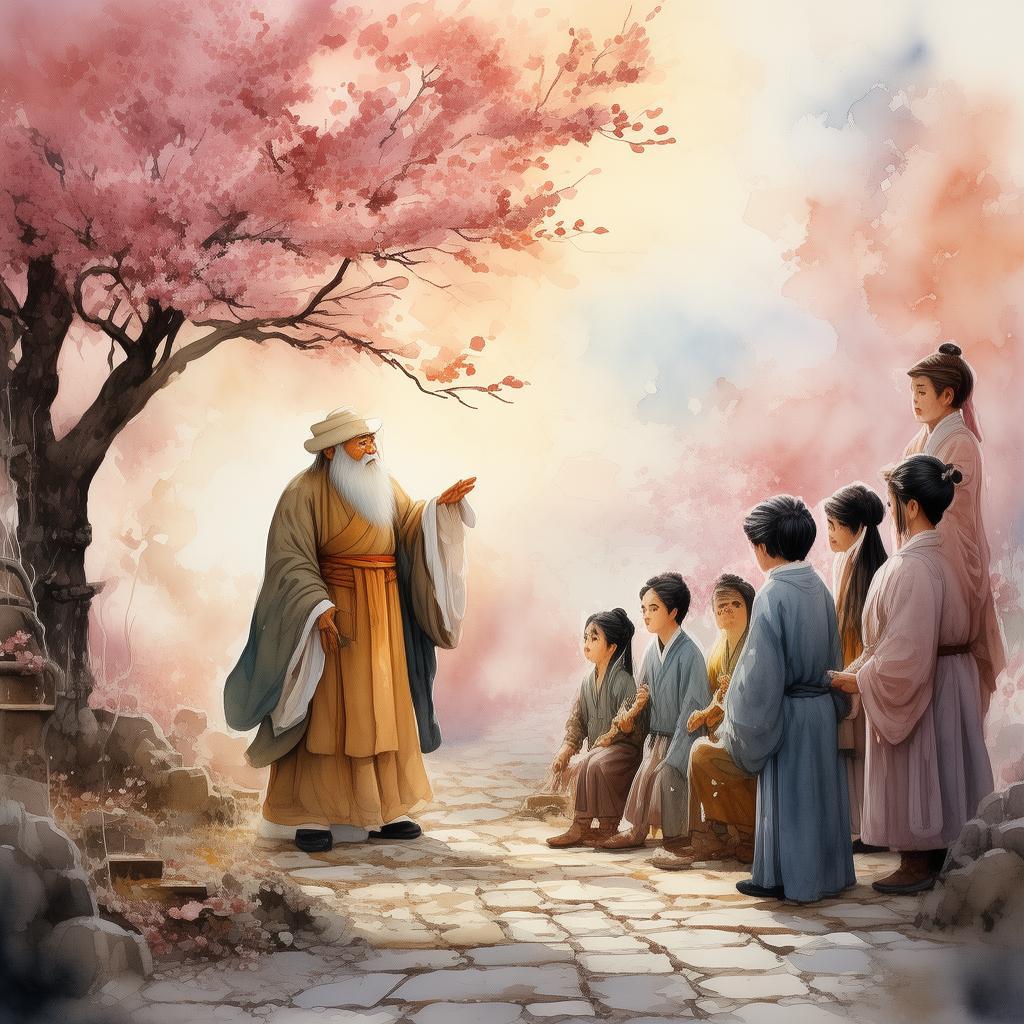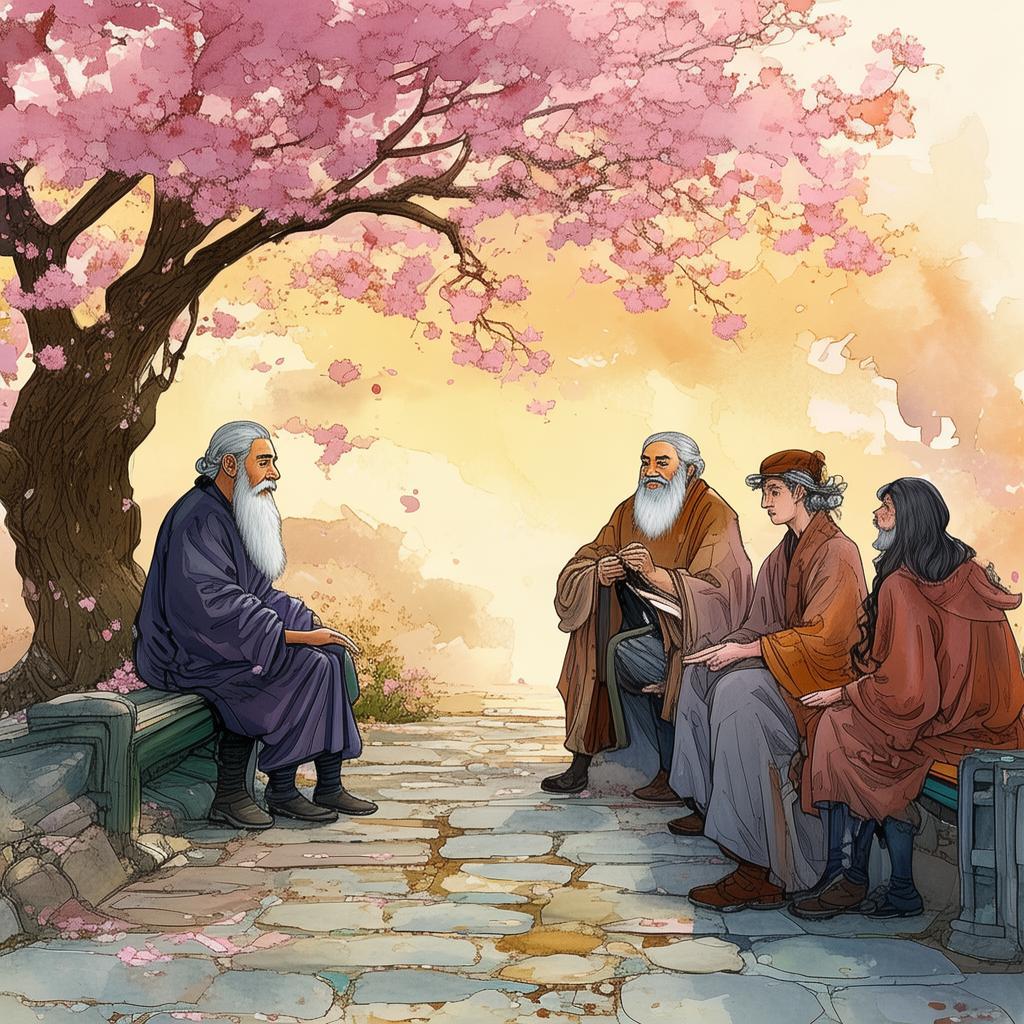The Pen That Weighed a Thousand Words
In the heart of an ancient city, where the cobblestone streets whispered tales of yore, there lived a writer named Feng. Feng was no ordinary man; he was a master of the written word, a scribe whose pen danced with the grace of a phoenix. His stories were like rivers of ink, flowing with emotion and wisdom, capturing the hearts of countless readers.
Feng's fame grew like a weed in fertile soil, spreading far and wide. His tales were known for their depth and nuance, for the way they made readers feel as if they were part of the story. People whispered his name in awe, and publishers vied for the chance to publish his next work.
But Feng was not content with this fame. He felt that his words were not his own; they were borrowed from some unseen scribe, a spirit of literature that had chosen him to be its vessel. To prove his worth, he began to self-debase, pushing the boundaries of his own humanity in the name of his art.
He starved himself, forcing his body to become a vessel of his words, believing that the more he suffered, the more his words would resonate with the readers. He wore rags, lived in the streets, and starved himself to the point of near-collapse, all in the name of his literary pursuit.
One night, as Feng lay in the dirt, his pen in hand, he felt a strange presence. It was the unseen scribe, a figure cloaked in shadows, its eyes glowing with a light that seemed to pierce through time. The scribe spoke to Feng, its voice a whisper that echoed in his mind.
"You seek to prove your worth, but you forget that the true worth of a writer lies not in self-debasement, but in the connection you forge with your readers. Your words are not yours to own, but to share."
Feng listened, his heart heavy with the truth of the scribe's words. He realized that his journey had been a mistake, that he had been so caught up in the pursuit of literary fame that he had forgotten the essence of his craft.
With a newfound understanding, Feng began to change. He stopped self-debasing, instead embracing his humanity and using his words to uplift others. He wrote stories of hope, of love, and of the human spirit's resilience. His readers felt the change in his work, and they responded with a newfound love and respect.
The once-suffering writer found joy in his craft once more. He realized that the true power of his pen was not in the pain he endured, but in the joy he brought to others. His stories became a beacon of light, a testament to the power of the human heart.
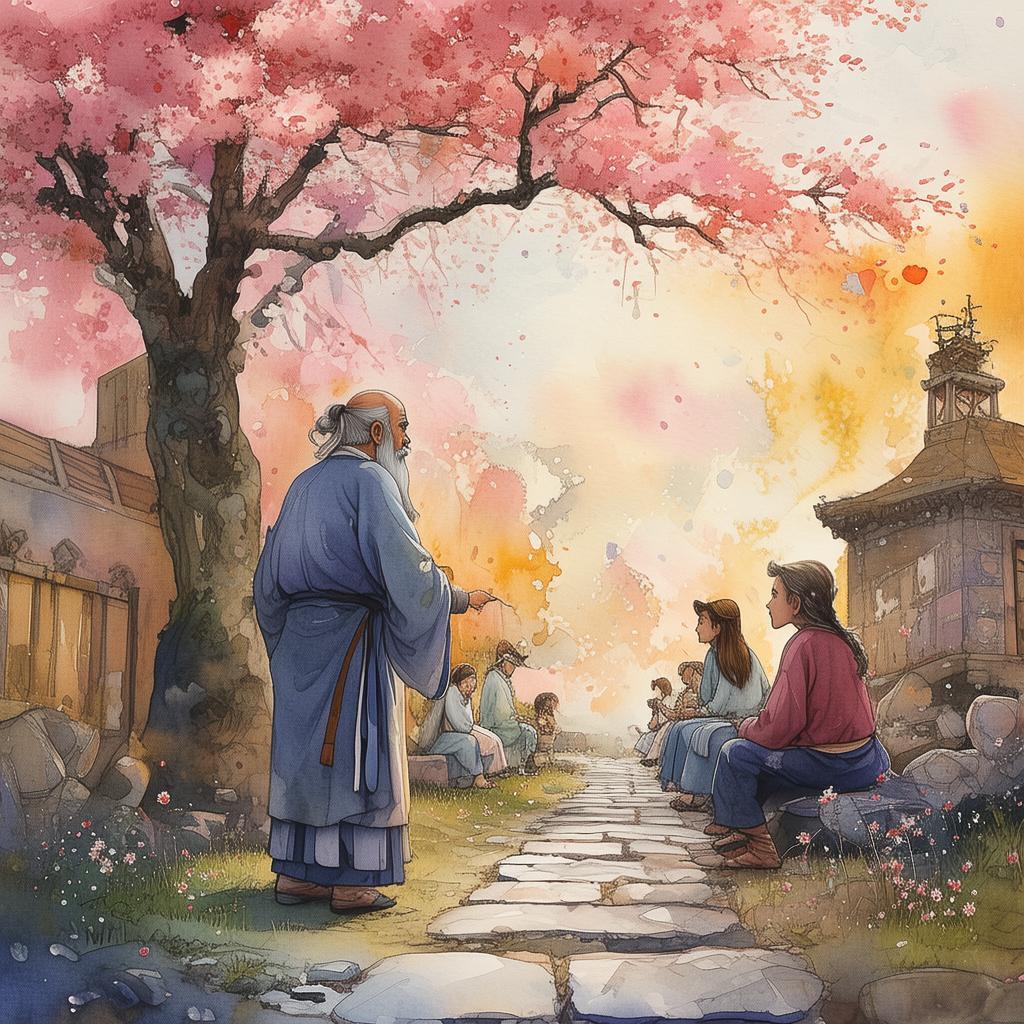
As Feng's fame grew once again, it was different this time. It was not a hollow victory, but one filled with meaning and purpose. His readers knew that he had paid a price for his art, but it was a price worth paying for the beauty and hope his words brought into their lives.
And so, Feng's tale became a legend, a story of a writer who learned that the true power of literature lay not in self-debasement, but in the ability to touch the hearts of others. His name was whispered in reverence, not for the pain he had endured, but for the joy and hope he had given to the world.
In the end, Feng's pen weighed a thousand words, not because of the pain he had suffered, but because of the love and compassion he had shared through his stories. And that, more than anything, was his greatest achievement.
✨ Original Statement ✨
All articles published on this website (including but not limited to text, images, videos, and other content) are original or authorized for reposting and are protected by relevant laws. Without the explicit written permission of this website, no individual or organization may copy, modify, repost, or use the content for commercial purposes.
If you need to quote or cooperate, please contact this site for authorization. We reserve the right to pursue legal responsibility for any unauthorized use.
Hereby declared.
